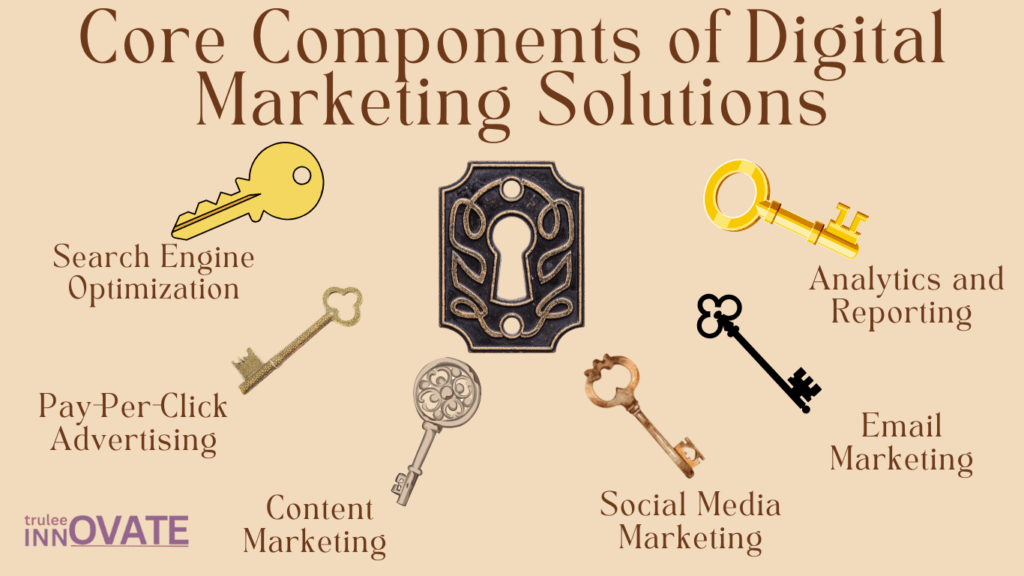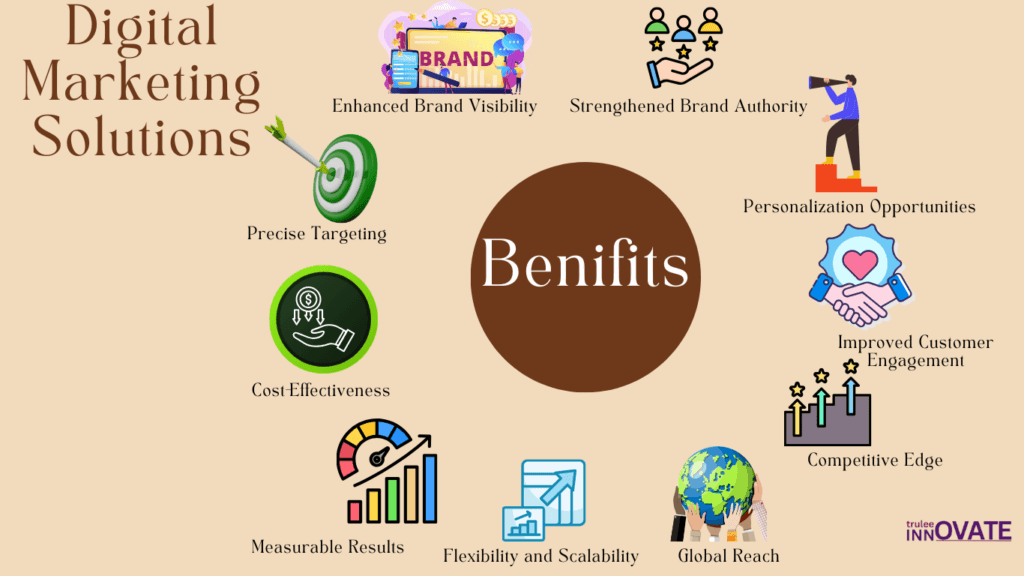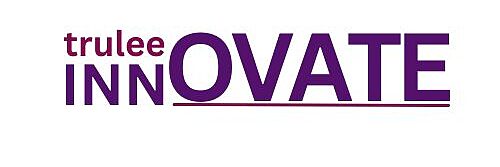Introduction: The Importance of Digital Marketing Solutions in Modern Business
In today’s digital-first world, businesses are constantly seeking ways to engage with their audiences effectively. The shift from traditional marketing methods to digital strategies has been transformative. Digital marketing solutions have become a cornerstone of success, offering unparalleled opportunities to connect, engage, and grow. These solutions are no longer optional—they are essential for staying competitive in a rapidly evolving marketplace.
This blog will explore the power of digital marketing solutions, their key components, and how businesses can master these strategies to thrive.
Understanding the Core Components of Digital Marketing Solutions
To succeed in implementing digital strategies, it’s essential to understand what digital marketing solutions encompass. Below are the key components:
- Search Engine Optimization (SEO):
Optimizing your website to rank higher on search engine results pages (SERPs) is known as search engine optimization, or SEO. This guarantees that your company will appear when prospective clients look up pertinent terms.
2. Pay-Per-Click Advertising (PPC):
PPC campaigns, such as Google Ads, allow businesses to bid for ad placements and only pay when users click on their ads, ensuring cost-efficiency.
3. Content Marketing:
Digital marketing relies heavily on interesting, high-quality content. Blogs, videos, and infographics educate and attract audiences while improving SEO performance.
4. Social Media Marketing:
Platforms like Facebook, Instagram, LinkedIn, and Twitter are critical for building relationships with customers, promoting products, and generating leads.
5 Email Marketing:
Email marketing is still one of the best ways to develop relationships, nurture prospects, and increase conversions with tailored messaging.
6. Analytics and Reporting:
Understanding campaign performance through analytics tools allows businesses to optimize strategies for better results.

Understanding the Core Components of Digital Marketing Solutions
To succeed in implementing digital strategies, it’s essential to understand what digital marketing solutions encompass. Below are the key components:
Benefits of Implementing Digital Marketing Solutions
Implementing digital marketing solutions offers numerous advantages for businesses. Below is a comprehensive overview of the benefits:
- Enhanced Brand Visibility : By leveraging strategies such as SEO, social media, and content marketing, businesses can significantly increase their online visibility, ensuring that their target audience easily discovers them.
- Precise Targeting : Businesses can use digital marketing to target particular interests, habits, and demographics. Platforms like Google Ads and Facebook Ads enable businesses to create campaigns tailored to their ideal audience.
- Cost-Effectiveness :Digital marketing solutions are more cost-effective and provide a higher return on investment than traditional marketing techniques. Small businesses, in particular, benefit from cost-effective campaigns.
- Measurable Results : Unlike traditional marketing, digital campaigns offer measurable metrics. Tools like Google Analytics provide insights into traffic, conversions, and engagement, helping businesses refine their strategies.
- Improved Customer Engagement : Social media platforms, email campaigns, and chatbots enable businesses to engage with their audience in real-time, fostering trust and loyalty.
- Global Reach : With digital marketing solutions, businesses are no longer restricted by geographic boundaries. They can reach international audiences and explore new markets.
- Flexibility and Scalability: Campaigns for digital marketing can be instantly modified in response to performance indicators. Businesses can scale up or down depending on their objectives.
- Personalization Opportunities: Businesses can design highly customized campaigns with data-driven marketing. This enhances customer experiences and increases the likelihood of conversions.
- Strengthened Brand Authority: Consistent valuable content positions businesses as thought leaders in their industries, building credibility and trust with audiences.
- Competitive Edge : By adopting advanced digital marketing solutions, businesses can outperform competitors who rely on outdated or less effective methods.

Choosing the Right Digital Marketing Solutions for Your Business
Selecting the right digital marketing solutions depends on several factors:
Understand Your Audience
Conduct thorough research to identify your audience’s preferences, behavior, and pain points.
Set Clear Goals
Establish your goals, whether they be higher sales, lead generation, or brand awareness.
Consider Your Budget
Allocate resources wisely. Start with cost-effective strategies like content marketing and scale up as your budget allows.
Evaluate Tools and Platforms
Evaluate tools and platforms by identifying those that best align with your audience’s preferences and business objectives. For instance, B2B companies might prioritize LinkedIn, while eCommerce brands may focus on Instagram.
Monitor and Optimize
Continuously track performance metrics to ensure your chosen solutions deliver results.
Developing a Strategy for Effective Digital Marketing Solutions
Several steps are necessary for a good digital marketing strategy:
Conduct a SWOT Analysis:
Identify strengths, weaknesses, opportunities, and threats to shape your strategy.
Create a Customer Persona:
Develop detailed profiles of your ideal customers to guide your campaigns.
Choose the Right Channels:
Pay attention to the sites where your audience is most engaged.
Develop High-Quality Content:
Invest in engaging, informative, and SEO-optimized content.
Set a Budget:
Allocate funds for advertising, tools, and other resources.
Leverage Automation:
Use tools like HubSpot or Mailchimp to streamline processes and improve efficiency.
Leveraging Technology
It is impossible to exaggerate the importance of technology in digital marketing solutions. Businesses can enhance their strategies using:
AI and Machine Learning:
AI-powered tools provide predictive analytics, automate tasks, and offer personalized recommendations.
Marketing Automation Platforms:
Platforms like Marketo and Salesforce automate workflows, saving time and improving efficiency.
Advanced Analytics Tools:
Tools like Google Analytics and SEMrush offer in-depth insights into performance metrics
Common Challenges in Implementing Digital Marketing Solutions
Despite its benefits, implementing digital marketing solutions comes with challenges:
Budget Constraints:
It can be difficult for small enterprises to set aside enough funds.
Rapidly Changing Trends:
The digital landscape evolves quickly, requiring constant adaptation.
Knowledge Gaps:
Lack of expertise in tools and strategies can hinder progress.
Data Privacy Concerns:
Adhering to data privacy regulations, such as GDPR, is critical.
Future Trends in Digital Marketing Solutions
Voice Search Optimization:
As smart speakers gain popularity, businesses must adapt to voice search.
Augmented Reality (AR):
AR offers immersive experiences, especially in eCommerce and real estate.
Video Marketing Dominance:
Videos will continue to be a preferred medium for engagement.
Focus on Sustainability:
Brands that emphasize eco-friendly practices in their messaging are gaining traction.
Conclusion: Staying Ahead
Mastering digital marketing solutions is no longer a choice—it’s a necessity. By embracing these strategies, businesses can achieve sustainable growth, outperform competitors, and adapt to changing market trends. Although the path may be difficult, the benefits make the effort worthwhile


